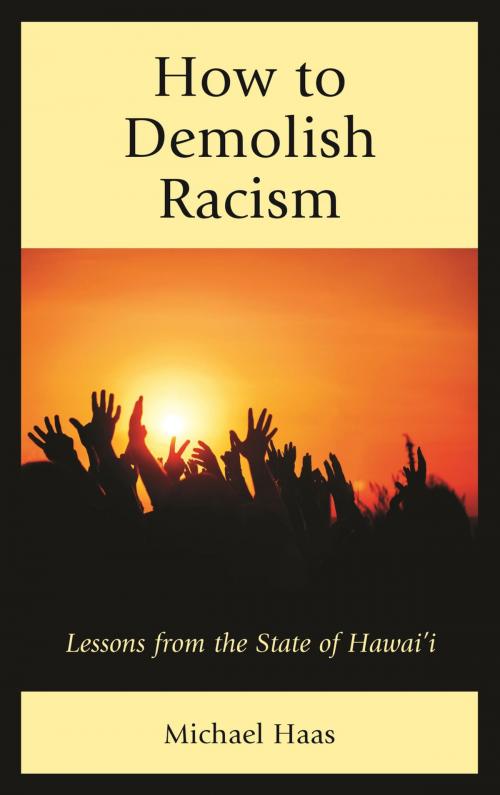How to Demolish Racism
Lessons from the State of Hawai'i
Nonfiction, Social & Cultural Studies, Political Science, Government, Public Policy, International, International Relations| Author: | Michael Haas | ISBN: | 9781498543217 |
| Publisher: | Lexington Books | Publication: | October 7, 2016 |
| Imprint: | Lexington Books | Language: | English |
| Author: | Michael Haas |
| ISBN: | 9781498543217 |
| Publisher: | Lexington Books |
| Publication: | October 7, 2016 |
| Imprint: | Lexington Books |
| Language: | English |
Even before statehood, Hawai‛i’s example of school integration gave birth to the movement resulting in Brown v Board of Education. Afterward, the Aloha State was the first to adopt many reforms: unrestricted abortion, universal health care insurance, an Equal Rights Amendment, a State Ombudsman, neighborhood boards, classifying Whites as a “minority” in affirmative action, banning strip searches of females, and dozens of other innovative reforms that have been adopted elsewhere. Hawai‛i remains the only state that is officially bilingual, has required mediation before foreclosures, celebrates an Islam Day, prohibits discrimination based on credit history and breastfeeding, bans smoking until the age of 21, disallows plastic bags, has declared an end to the use of fossil fuels by 2045, and has adopted many other measures that lead the world.
This book explains how developments in the Aloha State, which have provided leadership to the United States, may be copied elsewhere, primarily based on the technique of reverse cultural engineering, which is the unrecognized basis for legal systems around the world.
Even before statehood, Hawai‛i’s example of school integration gave birth to the movement resulting in Brown v Board of Education. Afterward, the Aloha State was the first to adopt many reforms: unrestricted abortion, universal health care insurance, an Equal Rights Amendment, a State Ombudsman, neighborhood boards, classifying Whites as a “minority” in affirmative action, banning strip searches of females, and dozens of other innovative reforms that have been adopted elsewhere. Hawai‛i remains the only state that is officially bilingual, has required mediation before foreclosures, celebrates an Islam Day, prohibits discrimination based on credit history and breastfeeding, bans smoking until the age of 21, disallows plastic bags, has declared an end to the use of fossil fuels by 2045, and has adopted many other measures that lead the world.
This book explains how developments in the Aloha State, which have provided leadership to the United States, may be copied elsewhere, primarily based on the technique of reverse cultural engineering, which is the unrecognized basis for legal systems around the world.















